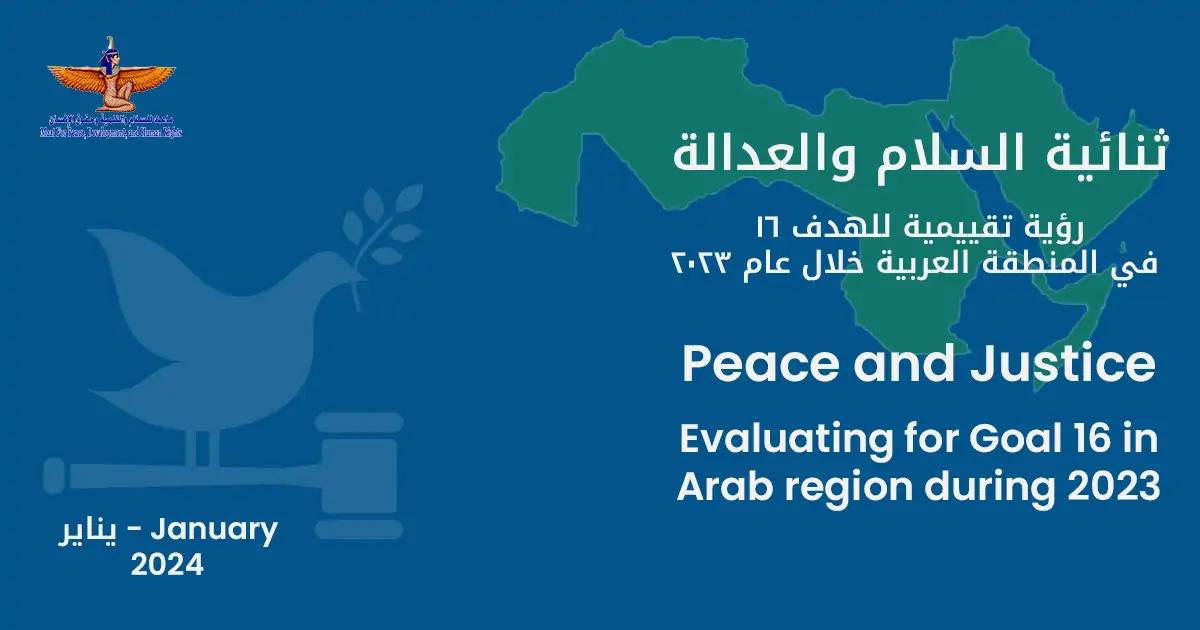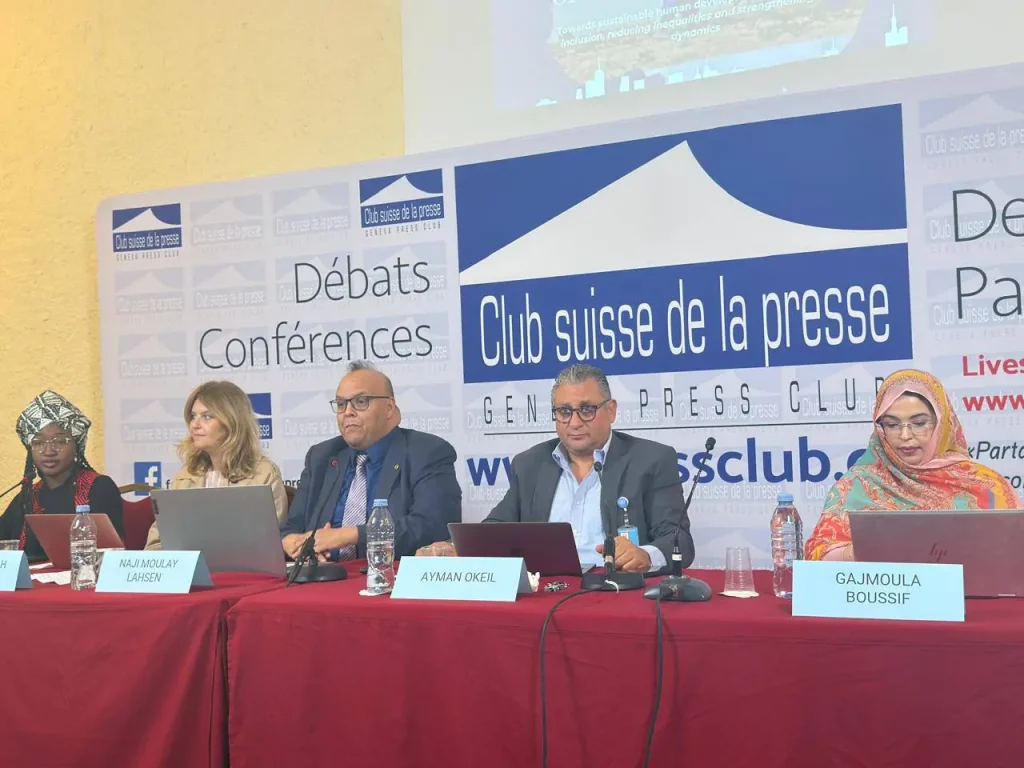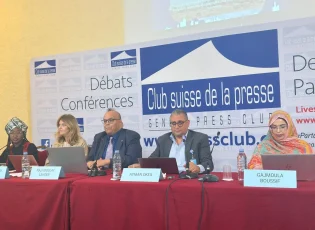“Okeil”: We recommend the Arab League to file a case to accuse Israel of committing war crimes in Gaza, based on Rule 53 of IHL
“Iman Fahim”: We recommend opening a political dialogue between the two parties to the conflict in Sudan to achieve all means of transitional justice and redress
Within the framework of its commitment to promoting the sustainable development agenda in the Arab region, with a particular focus on peace, justice, and strong institutions, Maat for Peace, Development, and Human Rights has released a new study titled "Peace & Justice Duality: Evaluative Vision of SDG 16 in the Arab Region During 2023." The study sheds light on the violations and brutality perpetrated by the Israeli occupation forces in the Gaza Strip, the ongoing conflict in Sudan, the security crises caused by the Houthi militia in Yemen, and the escalating attacks by extremist groups in the Arab region.
In this study, Maat examines the developmental path aimed at fostering peace and justice in Arab countries. It closely monitors and analyzes the security and political crises occurring in the region, recognizing that sustainable development in the Arab region is intricately linked to supporting initiatives for peace, justice, and the establishment of robust institutions. The foundation presents a set of recommendations to further strengthen the development trajectory for peace and justice in the Arab region.
Maat emphasizes that the ongoing violence in Gaza and the continued heinous crimes committed by the Israeli aggression across Palestine have had a detrimental impact on all efforts aimed at achieving peace and justice. Consequently, Palestine's ranking in the Global Peace Index for 2023 has deteriorated, placing it at 134th out of 163 countries.
Simultaneously, the devastating civil war in Sudan undermines the path toward achieving justice within the country and hampers progress in human rights and development work related to SDG 16. Sudan's ranking on the Global Peace Index has plummeted to 155th out of 163 countries, categorizing it as "very low" in terms of peace. Furthermore, the war has exacerbated gender-based abuses, exposing over 4 million Sudanese women to the risk of violence and sexual exploitation from both sides of the conflict. Maat also provides comprehensive monitoring and statistical data on SDG 16 in all Arab countries during the same period.
Ayman Okeil, an International Human Rights Expert and Chairman of Maat, shared his perspective on the current security situation in Sudan and Palestine, which are considered the most volatile countries in the Arab region. While some Arab countries are striving to overcome long-standing political crises, others are making progress in their developmental efforts, focusing on building peace, fostering justice, and establishing strong institutions. As a result, there is a need for diverse approaches and mechanisms to support peace initiatives in the Arab world and advance the targets and indicators of SDG 16.
Okeil urged the League of Arab States to take legal action against Israel, accusing them of committing war crimes against the residents of the Gaza Strip. This case would be based on Rule 53 of International Humanitarian Law, which explicitly prohibits the use of starvation as a weapon against civilians. The occupying authority's use of "starvation" as a means to coerce the population of the Gaza Strip into leaving their homes and relocating within the Strip is deeply concerning. Okeil also recommended launching an Arab project aimed at holding the Israeli authorities accountable by submitting detailed reports on their crimes in the Gaza Strip to the International Court and advocating for the trial of Israeli war leaders.
Iman Fahim, a researcher in the Sustainable Development Unit at Maat, emphasized the importance of pursuing peaceful and constructive solutions, particularly given the escalating conflict in Sudan. Fahim proposed that the Intergovernmental Authority on Development (IGAD) facilitate a political dialogue between the conflicting parties in Sudan. This dialogue should be conducted in two stages, starting with a period of calm and progressing towards a comprehensive ceasefire. Additionally, Fahim recommended that the Working Group on Minority Rights at the African Commission on Human and Peoples' Rights establish channels to receive reports from victims of ethnic attacks. These reports would contribute to the creation of a comprehensive database that can be relied upon to achieve justice and fairness in Sudan once the situation stabilizes.
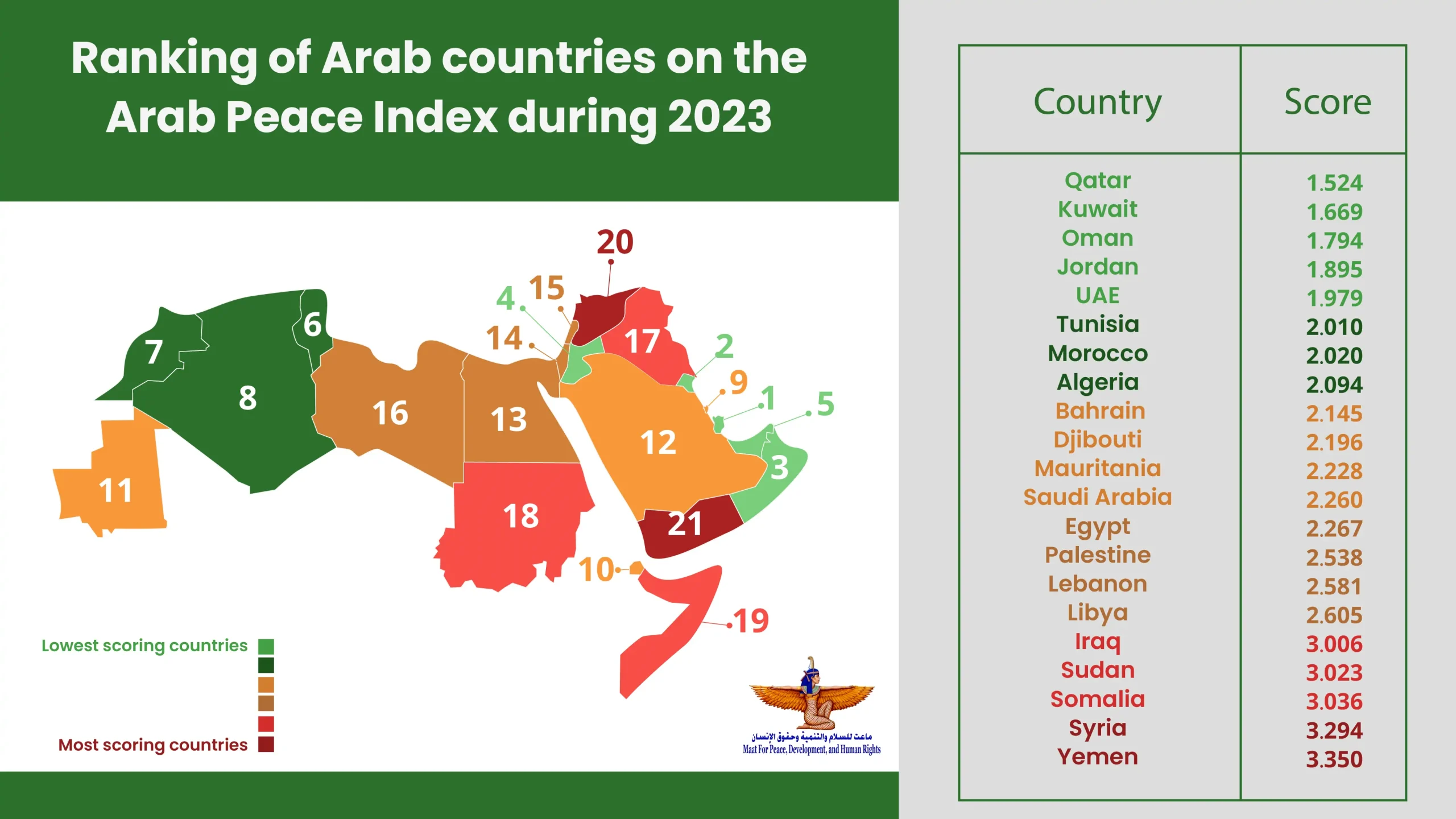

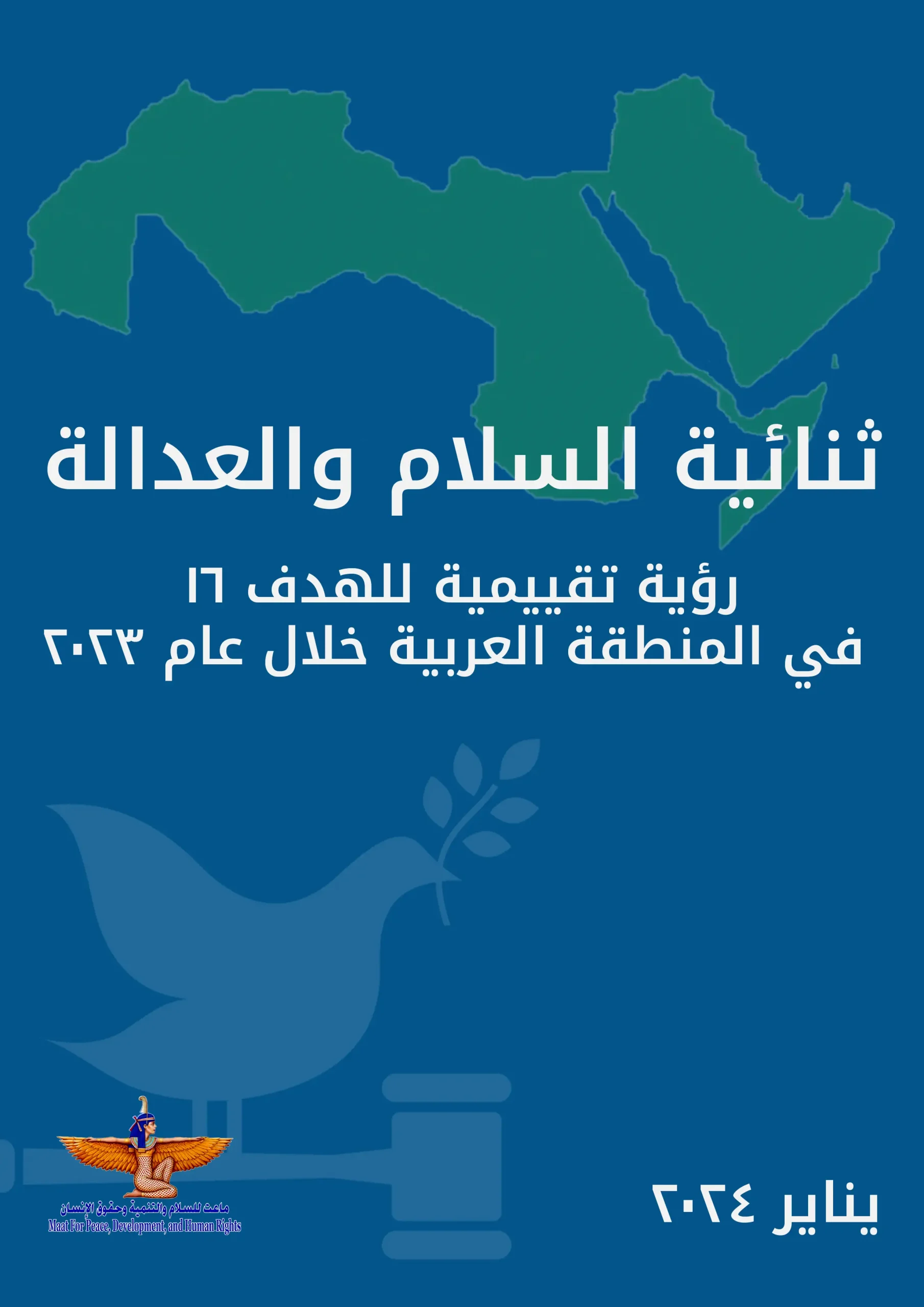 |
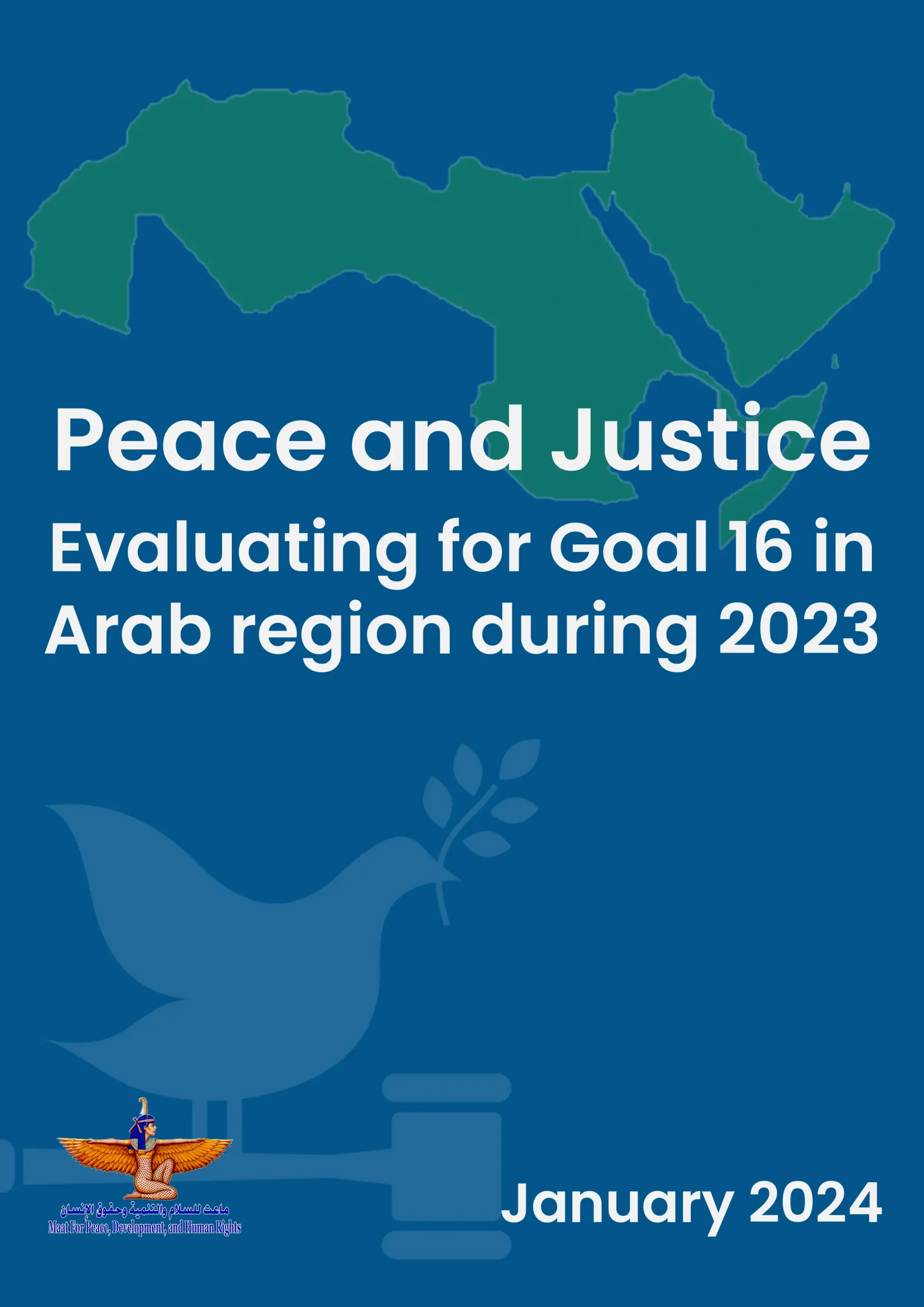 |
shortlink: https://maatpeace.org/en/?p=41315


